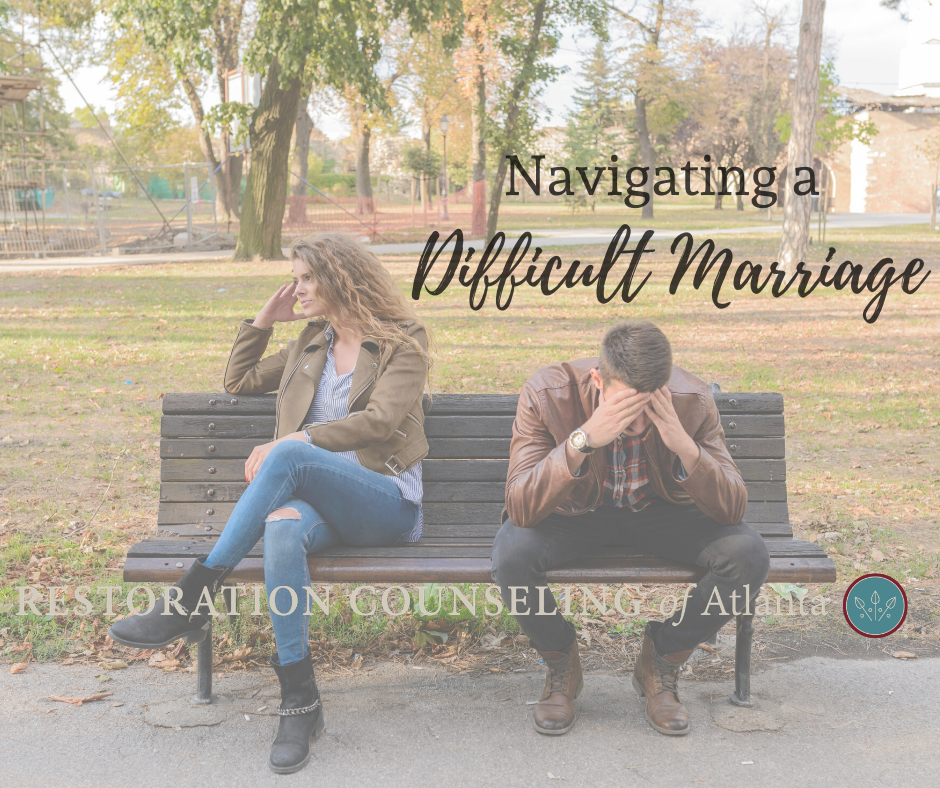Finding good books or resources on making a “ho-hum” marriage better is easy. Finding good books that offer help for a difficult marriage is not easy. In fact, implying to a distressed partner that relationship remedies apply across the board can be dangerous.
Imagine, if you will, that you go to the doctor for what seems like a chronic cough. Repeatedly, your doctor says, “Here’s some cough medicine, go home and rest and you’ll be better soon.” He does no further testing during your repeated visits. As a result, you decide to go to another doctor. This doctor hears your story, does further testing and finds evidence of a more serious issue. Perhaps you find that you have severe bronchitis or maybe emphysema. The treatment would then change, right?
Diagnosing a marital condition is similar. Some problems need more than your over-the-counter fare or one-size-fits-all type of counseling. Properly diagnosing the condition of a marriage is very important to not only effective treatment but also to prevent further damage.
Diagnosing the Condition of a Marriage
Nationally known Christian therapist, author, and speaker Leslie Vernick (www.leslievernick.com) is a voice in the Christian community that speaks to this issue. She identifies three categories of distress in marriages: difficult, disappointing, and destructive.
Difficult and disappointing marriages often involve circumstances beyond one’s control that are negatively contributing to a marriage. Or, there may be common negative patterns. These can be changed if each partner is willing and aware.
For example, chronic illness with a partner, child, or another family member may take a toll on the relationship. As a result, each partner may become unable to nurture themselves and/or the marriage. This may leave the marriage in a state of distress.
We might recognize that our partner or partner’s family has issues or emotional struggles that we didn’t sign up for. This can also create destructive patterns. Left unchecked, these can destroy a marriage.
Unhealthy learned attachment patterns, that may have served us in the past, often set couples up for decreased connection over time. Examples would be tendencies to avoid, please others, respond in anger, control others or see oneself as a victim.
Predictors of a Relationship Doomed for Destruction
Drs. John and Jule Gottman state their studies show that chronic use of the 4 Horseman:
- criticism,
- defensiveness,
- contempt, and
- stonewalling
is a very high predictor that a relationship is doomed for destruction. Using these patterns often puts a relationship initially in a difficult marriage category. But over time this can lead to a destructive marriage category. Using a therapist trained in the Gottman model of therapy for relationships is important for navigating one’s way out of these destructive behaviors.
Patterns of a Destructive Relationship
Leslie Vernick lists marital patterns that can lead to or define a destructive relationship:
- Imbalance of power and control
- Consistent lack of mutuality, reciprocity, and freedom
- Lack of personal responsibility for wrongs.
- Chronic deceit
- Blameshifting
- Chronic disrespect/ abuse (verbal or physical)
- Attitude of entitlement
- Chronic indifference
Factors that Increase Danger Levels
Leslie lists factors that can multiply a partner’s level of danger. If factors from list above and the list below are present, you are encouraged to seek safety as soon as possible before trying anything to improve your marriage.
- Divorce or Separation
- Alcohol or Drug use
- Narcissistic tendencies
- Guns or weapons around
- Emotionally unstable (mental health problems, head injuries that lead to violent behavior, etc.)
- Rebellious (won’t listen to authority)
- Other violent behavior (towards animals, road rage, etc.)
- Unpredictable (Dr. Jekyll/ Mr. Hyde)
- Suicide or Homicide threats
What You Can Do
You may be able to see that your marriage is heading for destruction or is already in a destructive category. That understanding does not mean that your next step is a call to a divorce attorney. Being in an unhealthy state is not a terminal diagnosis. There are many effective professional treatments to help marriages or individuals. It is possible to separate from destructive patterns in a partner. Therefore, seeking professional help is probably your next call.
If you are being abused physically or held against your will, your first call is to seek safety. Find the closest women’s shelter and get help preparing an escape. Call 911 if necessary. Next, seek professional help to grow in your understanding of how to stay in a healthier place relationally.
Next article I will discuss how to navigate separation of divorce should you find yourself heading for or in this place. Stay tuned!
Roswell Location
Debbie Turner received her Master’s in Marriage and Family Therapy from Richmont Graduate University; an academically sound, Christ-centered program. She is passionate about helping individuals and couples learn new ways of connecting with Christ and others to facilitate healing, transformation, and restoration.
Debbie has also completed training from Postpartum Support International. She is qualified to assess and treat women struggling with issues like depression, anxiety, anger, intrusive thoughts, or repetitive behaviors that can occur during pregnancy or after delivery.


 by
by